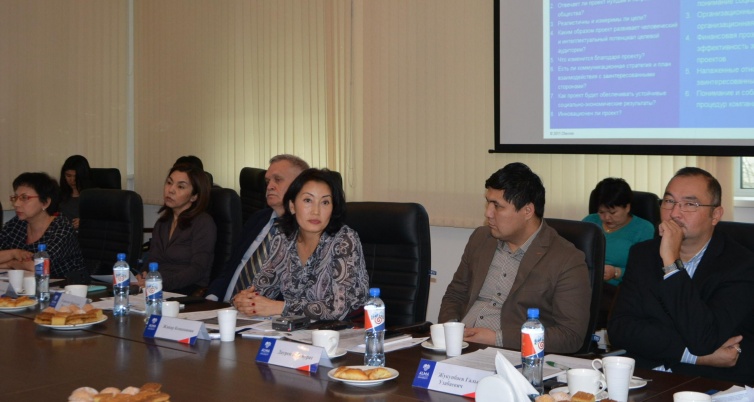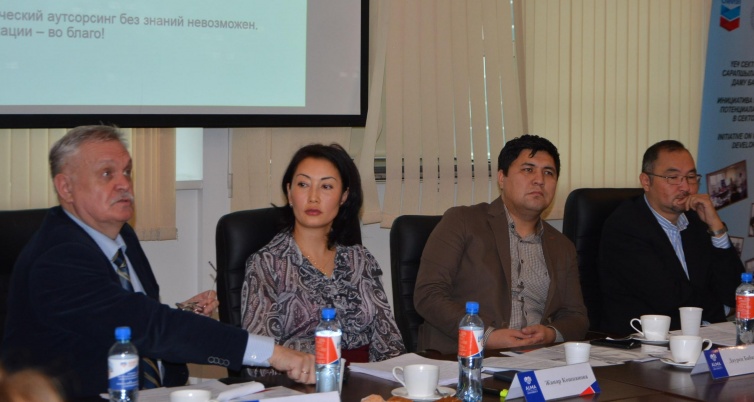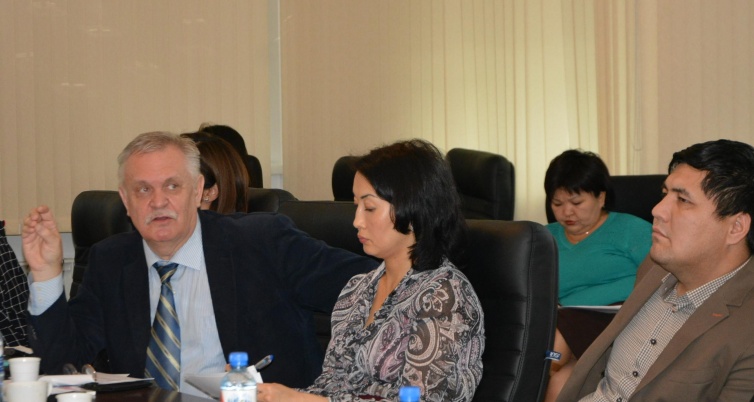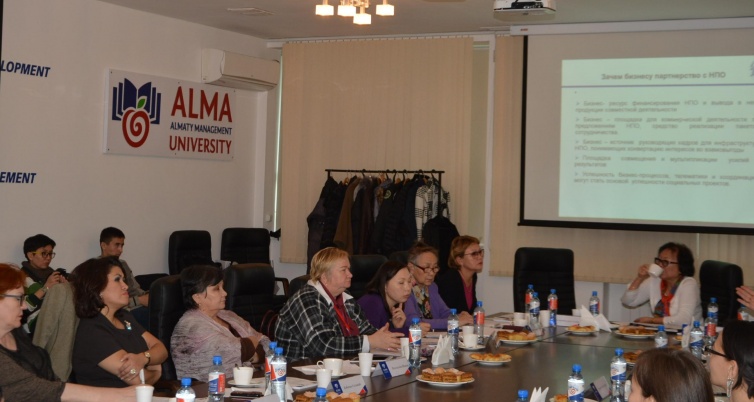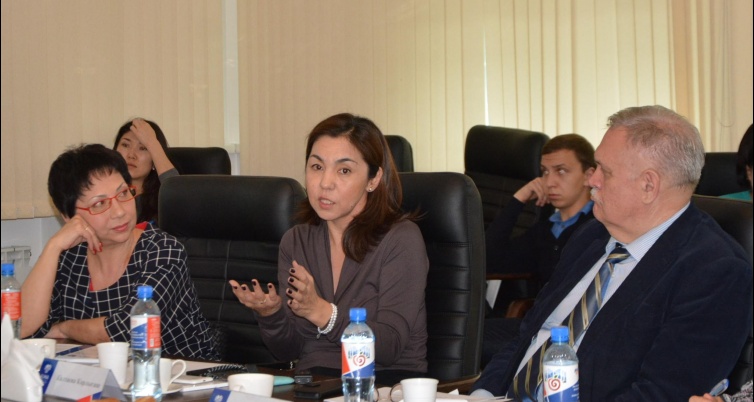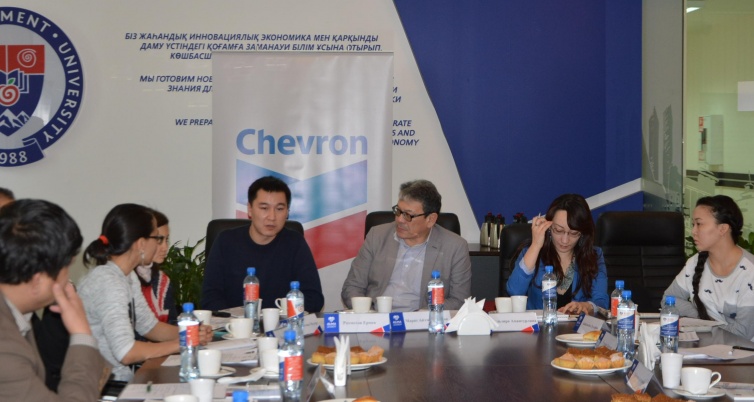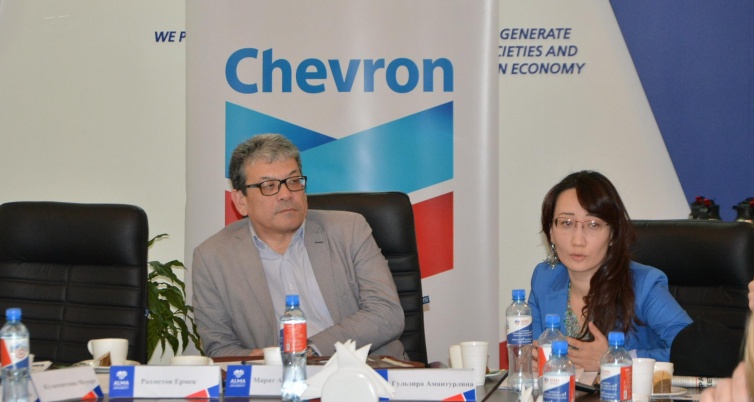Подпишитесь на наши новости:
News
другие News
European Union supports more active role of women and youth in decision-making in Kazakhstan
Qolda emergency assistance project
Qolda emergency assistance project
November 30, 2015
Round Table “Business and NGOs: Mechanisms for Cooperation” held in Almaty
On November 13, a round table event was held at Almaty Management University on “Business and NGOs: Mechanisms for Cooperation” by the NGO Expert Center and the Eurasia Foundation of Central Asia as part of the “Initiative for NGO Expert Development”, supported by Chevron in Kazakhstan.
“Chevron has always worked in close partnership with non-governmental organizations to implement its social programs,” said company representative Leila Aitmukhanova. “NGOs have unique experience and knowledge in the resolution of important social issues and are in fact the link between business, government agencies, and the community. They know the needs of citizens, provide us with feedback, and monitor the effectiveness of our social investments.”
Representatives of business, government agencies, NGOs, and the academic community gathered at the round table event to develop mechanisms for multi-stakeholder cooperation and to find common solutions to social issues. Participants weighed the benefits of partnership between business and non-commercial organizations, including the potential impact on NGOs and their ability to influence specific community issues. Participants also discussed examples of successful long-term partnerships and identified those factors which led to success.
“For the effective development of government in any country, there must be ‘triangular’ cooperation between government-business-NGOs. In Kazakhstan, partnerships are largely limited to collaboration between government and business, or government and NGOs. The relationship between business and the NGO sector leaves much to be desired. We hope that the round table will help stakeholder groups identify common ground and develop mechanisms for stronger partnership,” said Alma Sholpankulova, EFCA project manager.
“Two years ago we conducted research on CSR. Our research demonstrated that NGOs do not have a complete picture of business in the region, as information is largely provided by individual companies about their own work. At the same time, a significant number of businesses stated that they do not see much potential in the work of NGOs, but at the same time they said that lack of transparency among local government agencies is a significant barrier for the development of corporate social responsibility,” said Rinad Temirbekov, EFCA director. “According to the majority of companies, in an ideal world the government would take the lead and serve as the link needed for CSR development by establishing favorable conditions and ensuring representation of community needs. Experience shows that social projects are most effectively implemented in those areas where honest dialogue exists between government, business, and the community.”
The “Initiative for NGO Expert Development” aims to strengthen the NGO sector by promoting improved institutional development and high-quality service provision to the community. A primary objective of the program is to improve the quality of Trainings of Trainer events for NGO leaders across Kazakhstan.




